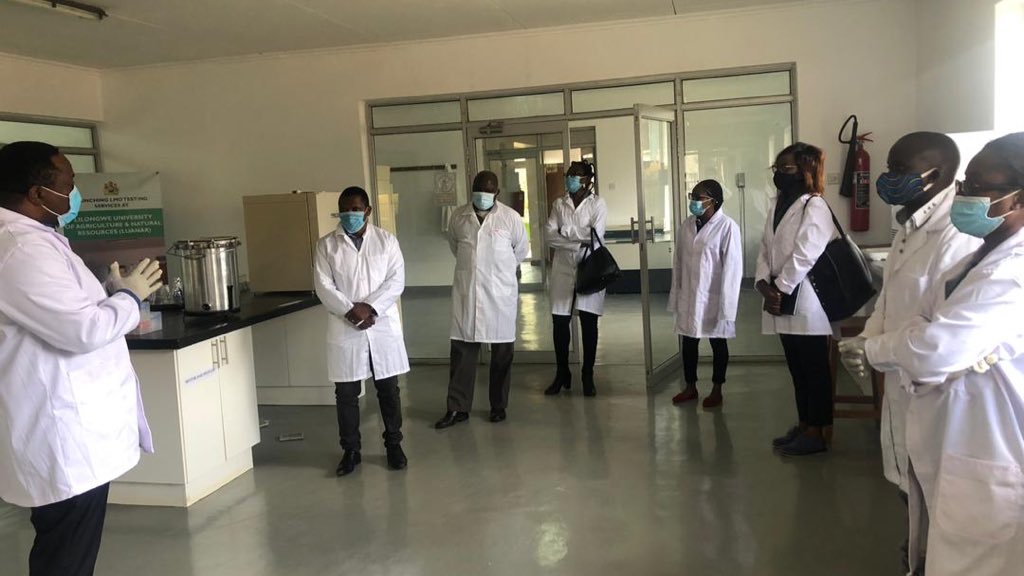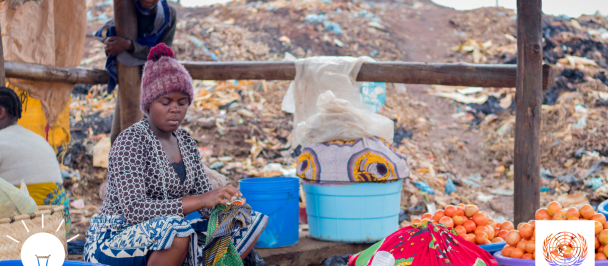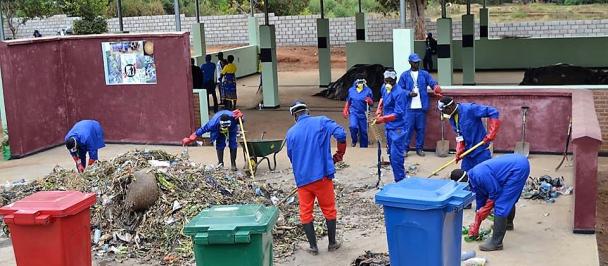UNDP AccLabs Malawi partnering with university innovation departments and Engineers without Borders for local PPE prototyping and production
There we were, beaming ear to ear as we listened to different stakeholders exchanging ideas on how best we could serve the many Malawians in need of personal protective equipment (PPEs) during this COVID-19 era. It had not been easy to get to this point, and the process was not linear, with a lot of back and forth we finally managed to have everyone in one call. We brought together heads of six major public Universities, UNDP’s Technology Access Partnership in Bangkok, Engineers Without Borders in the US, local Ministry of Health representatives and the UNDP country office Resident Rep, Deputy and Private Sector and Health focal points. The business of the day was to discuss how best to collaborate in order to develop local COVID-19 PPEs to international standards and deliver them to our health workers and marginalized populations who were desperately in need.
Like all frontier challenges, COVID - 19 has reaffirmed the need and urgency for new ways of working and emphasis for Malawi’s AccLab has been on creating partnerships that can produce quick and significant impact in the fight against the pandemic. Before Malawi declared a state of emergency, most of the local Universities were already showcasing PPE innovations on various social media platforms. Our initial hunch was to go into testing mode to help these institutions derive products that could be used by the Ministry of Health - but selecting which university to work with was challenging as all of them had relevant products. After an in-depth virtual solution mapping, we compiled all the solutions available and realized a few fundamental issues:
- There were a lot of similar solutions across institutions since they were based on open source designs
- Most of the solutions were not yet certified by local regulatory authorities due to a lack of product specifications to guide innovation development and quality checks. This gap meant the products could not be easily supported for mass production as they posed safety and efficacy risks.
- Universities lacked the funding mechanism to finalize innovations from prototyping, to quality assurance, mass production and then out to market.
- With the few products they were producing, some universities were already filling the gap of inadequate PPEs for health care workers by providing health facilities with hand sanitizers, disinfectants, face shields at low cost or no cost at all.
- Universities were a typical example of a Lead-user as they were ahead of the market.
A lack of appetite from most of the local players in private sector to repurpose machinery for PPE production coupled with a challenging business environment to get products on the global market meant that Universities were a key stakeholder to produce needed products beyond prototyping (even while operating on low capacity resources). However, University institutions are fragmented, as each operate on individual mandate and at times duplicating efforts and compromising standards. There was therefore a role for UNDP as an integrator, to create an environment for sharing ideas and developing partnerships.
How did we do it?
In order to connect the dots and provide a platform that could be useful for stakeholders we asked ourselves initial questions:
1. Who would do something about the situation?
Obviously, the Universities were the first to be invited to the table, but they could not work in isolation; we needed expertise that could affirm our experience by providing advice to international benchmarks, open source product specifications that could easily fit locally available resources and creating linkages with international expertise/groups engaging in similar product development. This led us to Engineers Without Boarders and Technology Access Partnership. We also needed local champions and this led to the Ministry of Health and donor partners and finally, we needed to create partnerships that could make impact quickly and that gave us the Private Sector Development team to link Universities with private sector players in Malawi. We would also obviously need buyers after production was successful and that gave us procurement teams of the various UN agencies within the UN country team.
2. What do they contribute or what do they receive?
Making UNDP a platform in action allowed us to understand the needs of each partner, their abilities and interest, as well as support we could provide as UNDP. In the initial call, the Universities clearly indicated they needed a platform that all six of them could interact on issues of innovation. The AccLab facilitated set-up of the Innovation Coordination Team, which is the first of its kind and has great potential to feed into national development agenda through the National planning commission representation in the team. The innovation coordination team can also feed into various national science and technology innovations through its representation from academia.
3. How might we make it simpler?
As AccLab, facilitating this platform, understanding how we could make these linkages and partnership simpler was key in knowing how we deliver quickly for a great impact. Building on old partnerships and support from the county office, we created linkages for stakeholders on the platform and facilitated discussions and agreements based on mutual agreements and understanding. Considering that funding has been an issue for the universities to develop products past prototypes, UNDP created a project worth USD251,200 to support universities past prototype stage.
4. Is the whole (still) greater than the sum of its parts?
Considering the diversity of the players, tradeoffs were made in order to come up with one coherent unit that would achieve specific objectives.
What did we learn?
Beyond the value we are providing as a broker, we are also learning and sharing this knowledge with our traditional partners: government and other UN agencies. We have created awareness of what the Universities are doing though product testing with end users at multiple points of society, and linking products and pricing to the procurement teams of UN agencies, in the spirit of Buy Malawi. Making UNDP a platform for partnership has showed us how important our role as integrator is, however, our relevance is built on how best we delivery, especially when dealing with challenges that are new in development. It goes without saying that we need therefore to hack our traditional integrator role to respond to new ways of working and the feat of building unusual partnerships or working with usual partners in unusual ways.
What NEXT: Our project supporting the six Universities to increase capacity for producing COVID products has taken off and we are excited with the new ways of working. We are challenging Malawian production systems to create abilities that can sustain the country post COVID-19, for example COVID 19 testing kits pilot we are supporting in two of the universities. Building partnerships can be mundane and our “aha moments” might be few, but it is one of the most important, hardest and rewarding endeavors in development and we are excited that we have a whole platform to learn from.

 Locations
Locations


